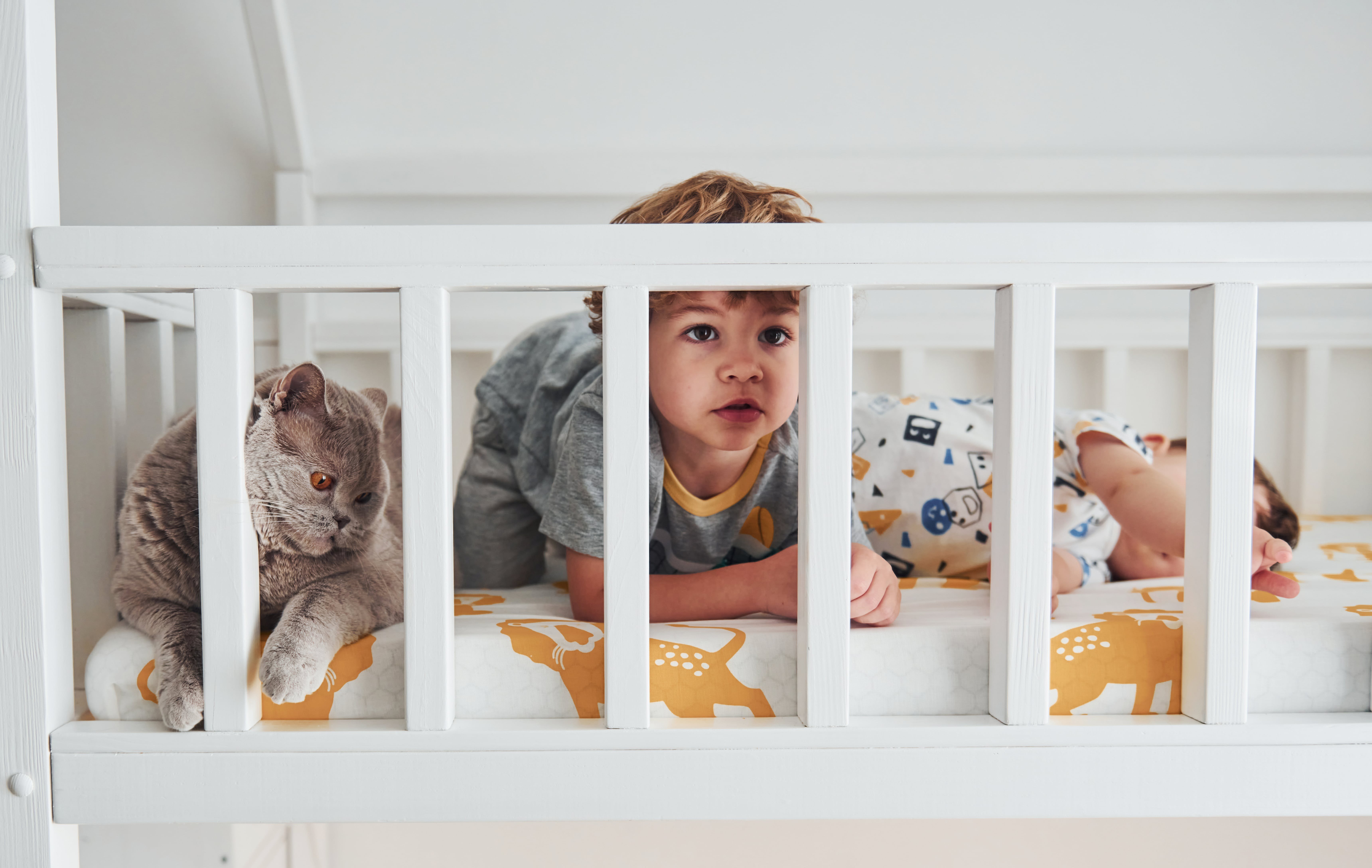You'll Be Unable To Guess Bedside Cosleeper's Benefits
페이지 정보

본문
 Bedside Cosleeper
Bedside CosleeperA bedside cosleeper is a bassinet that attaches to the side of your adult bed. It's safe as long as you comply with the CSPC safety guidelines for infant sleep spaces.
These guidelines are very similar to crib bedding standards. Learn more about the guidelines here. The most important aspects to take into consideration when selecting the best bedside sleeper are Safety Comfort, Convenience, and Safety.
Safety
Many new parents and expecting mothers have adopted cosleeping or bed-sharing, in accordance with the American Academy of Pediatrics recommendation that infants should sleep in the same room as their parents. The Academy states that room-sharing is more secure than sleeping with a baby in the same bed since it decreases the risk of Sudden Unexpected Death in Infants (also known as SIDS). While the AAP discourages bed-sharing, it does recommend that sleeping with a partner be done on a separate sleep surface to reduce the risk of SIDS. The creation of the bedside crib was essential for many families.
A bedside sleeper is attached to a bed frame that is suitable for adults. It's an equivalent of a crib-style sleeper. The bedside co sleeper cosleeper allows parents to easily monitor their little one, and it gives parents the freedom of sleeping in a bed while keeping their child close to them. The top cosleepers are constructed using high-quality materials and adhere to strict safety standards. Check for the Juvenile Products Manufacturers Association (JPMA) stamp of approval, which indicates rigorous product testing and quality controls, to ensure your child's safe cosleeping experience.
The safety of a cosleeper is dependent on several aspects. This includes how it's installed and secured to the mattress of the parent. It is crucial that the bedside sleeper cot cosleeper is connected to the mattress of the parent in a manner that prevents gaps and spaces where the infant may be trapped. This can pose the risk of suffocation. It is important that the attachment system of a bedside cosleeper be tested to ensure that it is able to withstand the forces that could be imposed during use, such as a parent rolling onto and off of the sleeper or 25-pound. The attachment system, or the corners on the bedside cosleeper - from this source - must be exposed to the horizontal force.
The standard for bedside sleepers includes by reference to the federal consumer safety standard for bassinets and cradles (16 CFR part 1218) that includes requirements for the performance of enclosed openings with a fabric-side. The mandatory requirements in the standard also address head and neck dangers of entrapment by requiring that, following the application and release of 50 lbs. horizontal force at the attachment system and the corners of the bedside sleeper a gap larger than 1.0 in. is not allowed to be created. ASTM's electronic Reading Room offers read-only versions of the standard.
Convenience
Many parents avoid cosleeping because they are afraid of being suffocated or SIDS, or because it is an "Ferberization" that forces children to be in a room by themselves. However, anthropologists have noted for years that many mammals, primates, and people from non-Western cultures cosleep regularly. This could be due to the fact that infants are comforted by the familiar voice of their mother, and it can also help them learn to self-soothe.
The best bedside sleepers feature clever design that can be attached to the side of a bed and can be swiveled for easy access for feedings during the night or diaper changes. Find a model with adjustable feet that retract to accommodate different sizes of mattresses. It should also include an ample storage area to store all the baby's necessities.
Choose a bedside sleeper which is compatible with standard crib bedding so that it can be used safely as your child grows. You might also look into an adjustable model that can transform into a play yard or a deeper bassinet for years of use, and folds up easily to travel cot bedside.
Portability
A bedside sleeper with wheels or a lightweight base is more portable than one with a bulky wooden frame or a substantial base. The Babybay Bedside Sleeper, HALO BassiNest Essentia and Snoo Smart Sleeper all have excellent portability features. Adjustable feet retract to accommodate platform beds; legs fold inward to ensure maximum proximity to the mattress; and sidewalls made of 100% mesh that let airflow without fabric covering baby's nose or mouth.
The Arm's Reach Clear-Vue is a popular option that adjusts in 1" increments to fit in most adult beds and can also serve as an portable bassinet. It also swivels to allow quick access to the baby to comfort her, nurse her or check on them during the night.
- 이전글Best Automatic Vacuum Cleaner Explained In Fewer Than 140 Characters 25.01.09
- 다음글What You Should Be Focusing On Improving Robot Vacuum Deals 25.01.09
댓글목록
등록된 댓글이 없습니다.

